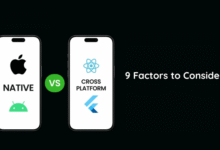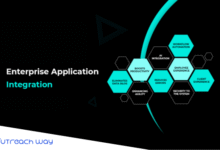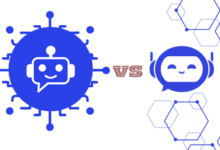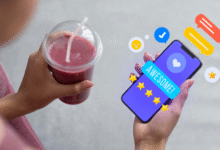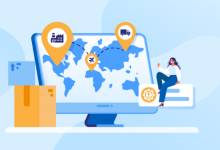Artificial Intelligence: This is How Marketing is Changing
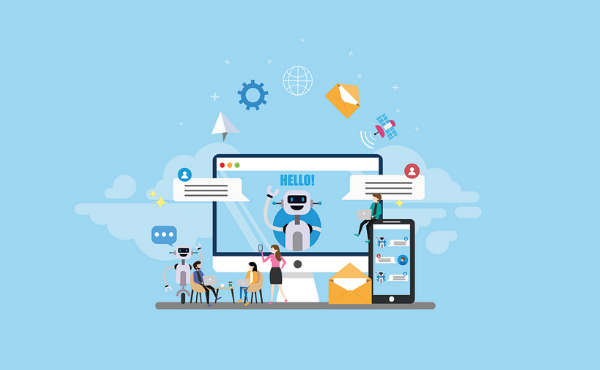
There are those who are still repellent to hear about artificial intelligence (because of what robots are going to supplant us, you know). But some of us are already rubbing our paws: do you get an idea of the enormous possibilities of artificial intelligence applied to marketing?
“If you have prejudices, forget them now: AI is a revolution. Are you going to be one of the first to benefit or do you get in line? ”
At the very least, stick your ear together so you don’t get out of date because this goes really fast.
If you have not yet considered that we already have these technologies on our doorstep, read this introductory post, so that you can get an idea of what is coming.
Table of Content
What are the Applications of Artificial Intelligence? (In Marketing or Whatever)
In fact, the question should be asked the other way around: what are not the applications of artificial intelligence?
In a very simple way, artificial intelligence is the result of handling data in a volume and with a precision that is not within the reach of a human brain. And with that data, you can do a lot of things.
Have we gone from simple? Fixed yes, but it is not our topic. What we wanted is for you to notice that magic word: data.
Which seems like no big deal, but it is everything. Bear in mind that until a few years ago (how many are few years? Ten? Twenty?) Access to data was much more complicated than now or outright impossible.
But today, if you need data on whatever it is (think of the fattest oddity you can think of), you have it at your fingertips thanks to the internet. The question is what can you do with them?
And again we turn it around: is there something you can’t do? The possibilities are endless.
Did we already tell you that in marketing we love data? Well, that.
Artificial Intelligence, Data, and Marketing: The Perfect Storm
Audiences, market trends, visits, conversions, locations, profiles… AI technologies are constantly being used to collect data, analyze it and draw conclusions.
Generalizing, the objective of the use of AI in marketing is to accelerate decisions based on results and to be able to reach a very high level of knowledge of the client: what are their preferences, how and when they want to receive our messages, etc.
In other words, a connection could be established in real time between consumers and companies, in order to generate instant, hyper-segmented, or, even more, personalized content.
The result is a candy: maximum efficiency in all our processes. But at levels that we cannot even imagine.
For that, what we know as machine learning is used, which is the ability to learn from experience. Translated to the marketing sector, it allows making predictions based on user behavior patterns.
And how do you know this? Again, thanks to the data.
We are still at the beginning of the road, but there are already aspects that we are applying. For example:
1. Content Generation
Beyond Google Translator, tools capable of organizing and creating ready-to-publish content are already being used.
For example, you may have heard of GPT-3, a technology that (they say) is capable of writing naturally, on any subject, and varying in style and tone.
Come on, not as a robot, but as a person.
Substitute for a professional (human) copywriter? Are you going to get rid of writing by entrusting it to Siri or Alexa?
We believe that at the moment not, except for simple texts. However, as we said, this goes fast.
2. Advertising
Knowing what the wishes and preferences of users are is very valuable when creating campaigns and displaying them. Ads are no longer static, but dynamic, with the ability to vary depending on the users they are shown to.
In this sense, artificial intelligence opens a new era in advertising. Now we can show an ad to the user who is looking for it, at the most opportune moment and in the right place (for example, when it is in a shopping center).
In other words, user experience on demand.
Sound like science fiction? Nope. We have already told you about this in this programmatic advertising post.
3. Relationship with the Client
Surely you yourself have already spoken with virtual assistants and chatbots, to make an online consultation. They are capable of generating a natural conversation and answering simple doubts.
For a business, it means that it can maintain its customer service 24 hours a day, every day of the week.
That still does not solve everything? Matter of time.
And much more: voice recognition, image recognition, automatic price variation based on demand, content curation …
This has only started.
Are you interested in applying artificial intelligence tools in your business?
You can ask us about it. We are a very human team and we love to keep up to date with new technologies that provide opportunities for our clients.
And, in addition, we always have the coffee maker ready, in case you visit them … (the bots are not going to beat us 😉 ).


